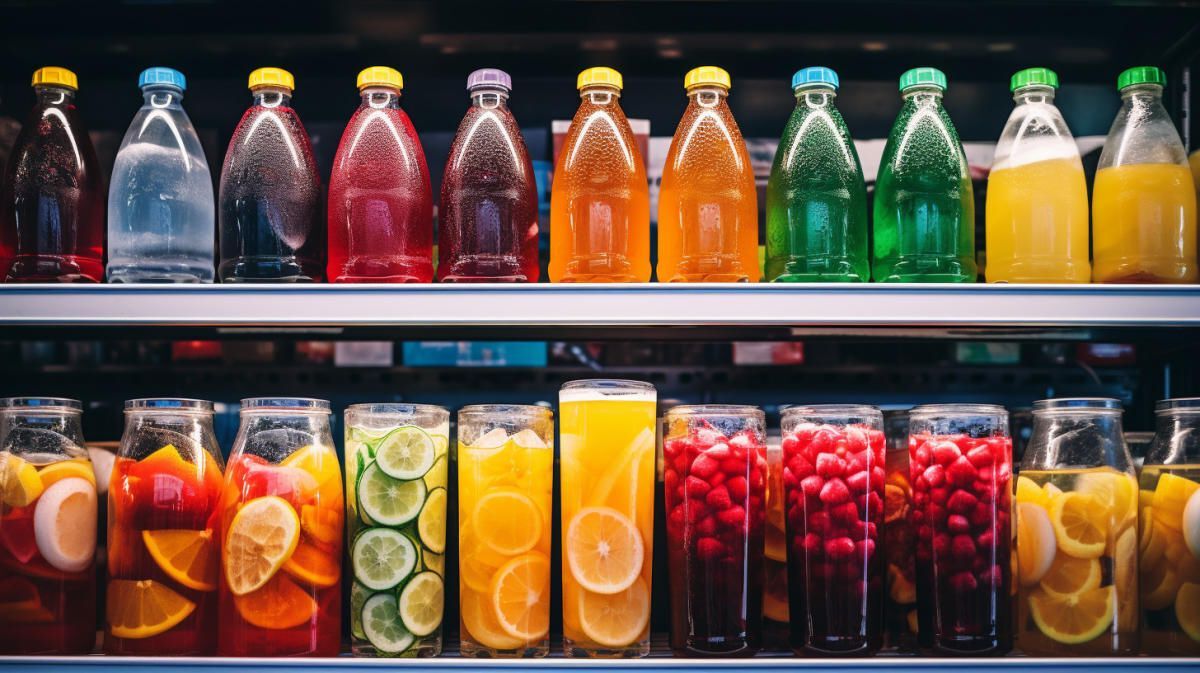
Ever wondered what makes your favorite drinks so special? From the fizz in soda to the rich aroma of coffee, beverages have fascinating stories and surprising facts. Did you know that tea is the second most consumed drink in the world, right after water? Or that the first carbonated drink was invented in the 18th century? Whether you’re a fan of smoothies, energy drinks, or a classic glass of milk, there’s a lot to learn about what we sip every day. Get ready to quench your thirst for knowledge with these 29 intriguing facts about beverages!
History of Beverages
Beverages have been a part of human culture for thousands of years. From ancient brews to modern-day concoctions, drinks have evolved significantly.
- The earliest evidence of beer dates back to around 5,000 BCE in Iran. Ancient Sumerians even had a goddess of beer named Ninkasi.
- Tea was first discovered in China around 2737 BCE by Emperor Shen Nong, who found it when leaves accidentally blew into his boiling water.
- Coffee was discovered by an Ethiopian goat herder named Kaldi in the 9th century. He noticed his goats became energetic after eating coffee berries.
- The first carbonated drink was created in 1767 by Joseph Priestley, who infused water with carbon dioxide, making soda water.
- Coca-Cola, one of the most famous soft drinks, was invented in 1886 by pharmacist John Stith Pemberton in Atlanta, Georgia.
Types of Beverages
There are countless types of beverages, each with unique characteristics and cultural significance.
- Water is the most essential beverage for human survival, making up about 60% of the human body.
- Milk is a nutrient-rich liquid produced by mammals. Humans have consumed it for thousands of years, with evidence dating back to 6,000 BCE.
- Wine is made from fermented grapes and has been enjoyed since around 6,000 BCE, with origins traced to Georgia.
- Beer is one of the oldest alcoholic beverages, brewed from cereal grains like barley and wheat.
- Tea is the second most consumed beverage in the world, after water, with over 3 billion cups consumed daily.
Health Benefits of Beverages
Many beverages offer health benefits, contributing to overall well-being.
- Green tea is rich in antioxidants called catechins, which can improve brain function and aid in fat loss.
- Coffee contains caffeine, which can enhance energy levels, improve mood, and boost metabolic rate.
- Red wine, in moderation, contains resveratrol, an antioxidant that may protect the heart and improve longevity.
- Herbal teas, like chamomile and peppermint, can aid digestion and promote relaxation.
- Coconut water is a natural electrolyte-rich drink that can help with hydration and replenishing lost nutrients.
Popular Beverages Around the World
Different regions have their favorite drinks, often tied to their culture and traditions.
- In Japan, matcha, a powdered green tea, is a staple in traditional tea ceremonies.
- Argentina is famous for its yerba mate, a caffeinated herbal tea shared among friends and family.
- India is known for its chai, a spiced tea made with black tea, milk, and various spices like cardamom and ginger.
- In Mexico, horchata, a sweet rice milk drink flavored with cinnamon, is a popular refreshment.
- Russia is renowned for its vodka, a distilled beverage made from fermented grains or potatoes.
Fun Facts About Beverages
Some beverages have fascinating trivia that might surprise you.
- The world’s most expensive coffee, Kopi Luwak, is made using beans that have been eaten and excreted by civet cats.
- The largest cup of tea ever made was in Sri Lanka in 2010, weighing over 4,000 pounds.
- The most expensive bottle of wine ever sold was a 1945 Romanée-Conti, which went for $558,000 at auction.
- Guinness World Records lists the largest beer festival as Oktoberfest in Munich, Germany, attracting over 6 million visitors annually.
- The first energy drink, Lipovitan D, was introduced in Japan in 1962.
Environmental Impact of Beverages
The production and consumption of beverages can have significant environmental effects.
- Coffee production can lead to deforestation and biodiversity loss if not managed sustainably.
- Plastic bottles from soft drinks contribute to pollution, with millions ending up in oceans each year.
- Wine production requires large amounts of water, with estimates suggesting it takes about 120 liters of water to produce one glass of wine.
- Tea plantations can lead to soil erosion and habitat destruction if not properly managed.
Sip on These Fun Facts
Beverages, from coffee to kombucha, hold fascinating stories. Coffee, for instance, is the second most traded commodity worldwide, right behind oil. Tea, another popular drink, has over 3,000 varieties. Did you know that Coca-Cola was originally green? Or that root beer was first marketed as a medicinal drink?
Wine lovers might be intrigued to learn that the oldest known winery dates back to 4100 B.C. Meanwhile, beer is the third most popular drink overall, after water and tea. Smoothies have become a health craze, but they actually date back to the 1930s.
From energy drinks to milkshakes, each beverage has a unique history and cultural significance. Next time you take a sip, remember these fun facts and impress your friends with your newfound knowledge. Cheers to learning something new!
Was this page helpful?
Our commitment to delivering trustworthy and engaging content is at the heart of what we do. Each fact on our site is contributed by real users like you, bringing a wealth of diverse insights and information. To ensure the highest standards of accuracy and reliability, our dedicated editors meticulously review each submission. This process guarantees that the facts we share are not only fascinating but also credible. Trust in our commitment to quality and authenticity as you explore and learn with us.


